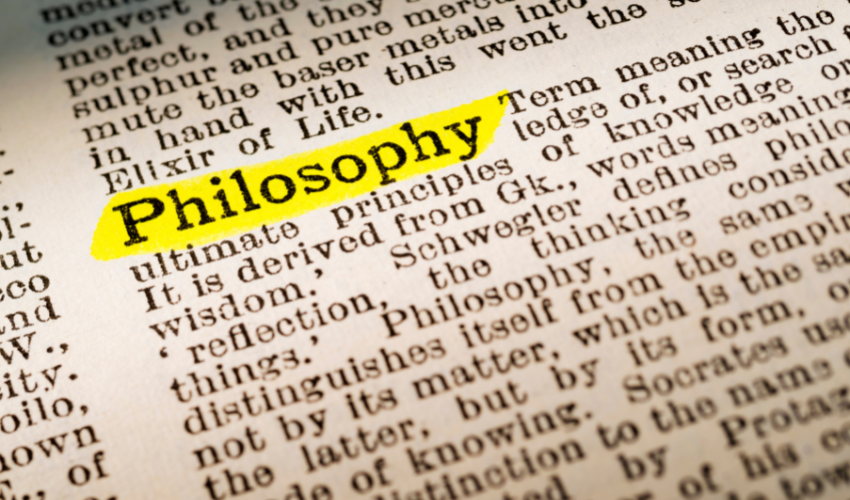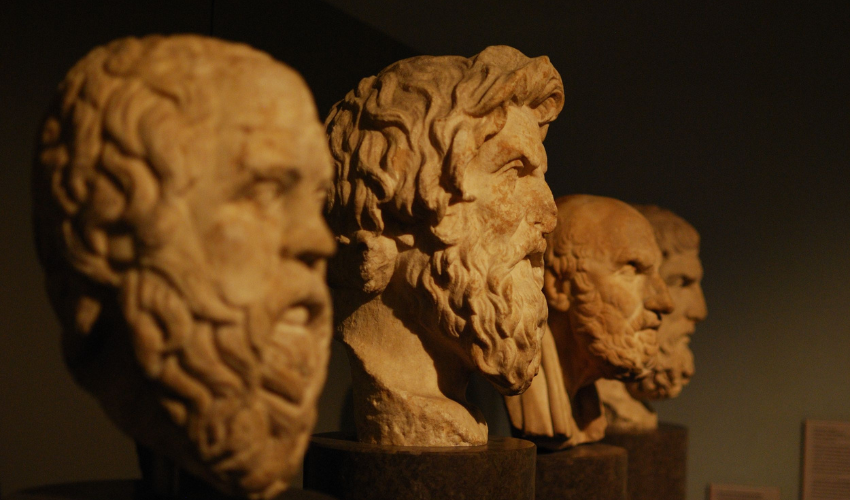Philosophy has been a source of fascination, inspiration, and debate for thousands of years. From ancient Greece to the modern era, philosophers have grappled with the big questions of life, reality, knowledge, ethics, and more. But what is the main idea of philosophy? What unites all the diverse strands and branches of this discipline? In this article, we will delve into the core of philosophy and shed light on its central concepts, debates, and approaches.

Here are some of the main ideas of philosophy
Metaphysics
Metaphysics is the branch of philosophy that examines the nature of reality. It asks questions such as “What is the nature of the universe?” and “What is the nature of existence?”. Metaphysicians explore the concepts of space, time, causality, and the relationship between mind and matter. They seek to understand the ultimate nature of reality and how it is interconnected.
Epistemology
Epistemology is the branch of philosophy that examines the nature of knowledge. It asks questions such as “What is knowledge?” and “How do we acquire knowledge?” Epistemologists explore the limits of knowledge and examine the reliability of different sources of information, such as perception, memory, and reasoning. They seek to understand the nature and scope of human knowledge and its relationship to the world.
 Ethics
Ethics
Ethics is the branch of philosophy that examines the nature of morality and moral behavior. It asks questions such as “What is right and wrong?” and “How should we act?” Ethicists explore the concepts of justice, fairness, and the moral responsibility of individuals and groups. They seek to understand the principles that underlie ethical behavior and the implications of these principles for individuals and society as a whole.
Logic
Logic is the branch of philosophy that examines the principles of reasoning. It asks questions such as “What is a valid argument?” and “How do we reason effectively?” Logicians explore the principles of deductive and inductive reasoning and the rules of inference. They seek to understand the foundations of rational thought and the relationship between reasoning and truth.
Aesthetics
Aesthetics is the branch of philosophy that examines the nature of beauty and the arts. It asks questions such as “What is beauty?” and “How do we appreciate art?”. Aestheticians explore the relationship between art and perception, the role of the artist, and the nature of artistic expression. They seek to understand the fundamental principles that underlie our aesthetic experiences and the ways in which they shape our understanding of the world.
Bullet Points
- Philosophy is a discipline that seeks to understand the most fundamental aspects of reality, knowledge, ethics, and more.
- Philosophers ask big questions such as “What is the meaning of life?”, “What is the nature of reality?”, and “What is the basis of morality?”.
- Philosophy has several major branches, including epistemology, metaphysics, ethics, and aesthetics.
- Some of the most famous philosophers include Plato, Aristotle, and Immanuel Kant.
- Philosophers use a variety of methods and approaches, including reason, logic, observation, and experimentation.
FAQs
Is philosophy relevant to modern life?
Yes. Philosophy is highly relevant to modern life, as it provides critical thinking skills, ethical guidance, and a deeper understanding of ourselves and the world.
What are the benefits of studying philosophy?
Studying philosophy can enhance your analytical and reasoning abilities. It can broaden your worldview, and deepen your understanding of fundamental questions and concepts that impact our lives.
Is philosophy just an abstract and theoretical discipline?
No. Philosophy is not just abstract and theoretical, but also has practical applications in fields such as law, politics, business, and medicine.
What is the difference between philosophy and science?
Philosophy and science both seek to understand reality. However, philosophy focuses on questions that cannot be answered through empirical investigation, such as ethics and metaphysics.
Can anyone do philosophy?
Yes. Anyone can do philosophy, as long as they are willing to engage in critical thinking and reflection, and explore the big questions of life and reality.
Conclusion
The main idea of philosophy is to explore the fundamental questions and concepts that define our existence and understanding of the world. From the ancient Greeks to modern thinkers, philosophers have sought to understand reality, knowledge, ethics, and more. By delving into the core of philosophy, we can gain a deeper understanding of ourselves. Whether you are a student of philosophy, a curious learner, or simply someone who seeks a deeper understanding of life, the study of philosophy offers a rich and rewarding journey of exploration and discovery.






















